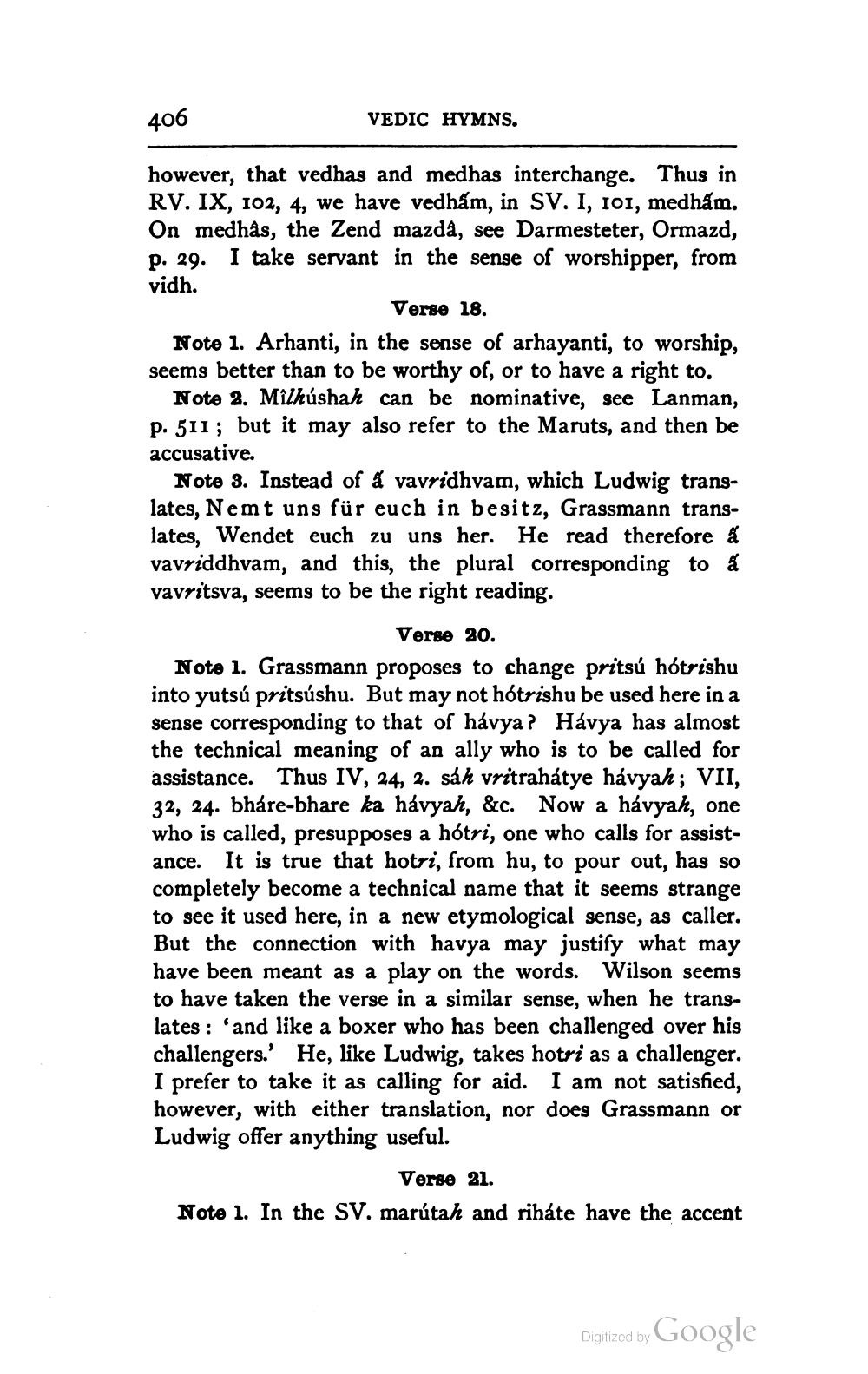________________
406
VEDIC HYMNS.
however, that vedhas and medhas interchange. Thus in RV. IX, 102, 4, we have vedham, in SV. I, 101, medham. On medhås, the Zend mazdá, see Darmesteter, Ormazd, p. 29. I take servant in the sense of worshipper, from vidh.
Verse 18. Note 1. Arhanti, in the sense of arhayanti, to worship, seems better than to be worthy of, or to have a right to.
Note 2. Milhúshah can be nominative, see Lanman, P. 511; but it may also refer to the Maruts, and then be accusative.
Note 3. Instead of a vavridhvam, which Ludwig translates, Nemt uns für euch in besitz, Grassmann translates, Wendet euch zu uns her. He read therefore a vavriddhvam, and this, the plural corresponding to a vavritsva, seems to be the right reading.
Verse 20. Note 1. Grassmann proposes to change pritsú hótrishu into yutsú pritsúshu. But may not hótrishu be used here in a sense corresponding to that of hávya? Hávya has almost the technical meaning of an ally who is to be called for assistance. Thus IV, 24, 2. sảh vritrahátye hávyah; VII, 32, 24. bháre-bhare ka hávyah, &c. Now a hávyah, one who is called, presupposes a hótri, one who calls for assistance. It is true that hotri, from hu, to pour out, has so completely become a technical name that it seems strange to see it used here, in a new etymological sense, as caller. But the connection with havya may justify what may have been meant as a play on the words. Wilson seems to have taken the verse in a similar sense, when he translates : 'and like a boxer who has been challenged over his challengers.' He, like Ludwig, takes hotri as a challenger. I prefer to take it as calling for aid. I am not satisfied, however, with either translation, nor does Grassmann or Ludwig offer anything useful.
Verse 21. Note 1. In the SV. marútah and riháte have the accent
Digized by Google




